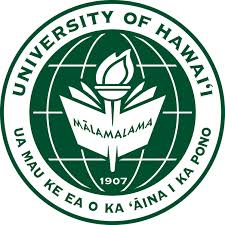Ph 3 ADI-PEG 20 Versus Placebo in Subjects With Advanced Hepatocellular Carcinoma Who Have Failed Prior Systemic Therapy
| Status: | Completed |
|---|---|
| Conditions: | Liver Cancer, Cancer |
| Therapuetic Areas: | Oncology |
| Healthy: | No |
| Age Range: | 18 - Any |
| Updated: | 9/20/2018 |
| Start Date: | July 2011 |
| End Date: | July 2015 |
A Randomized, Double-Blind, Multi-Center Phase 3 Study of ADI-PEG 20 Plus Best Supportive Care (BSC) Versus Placebo Plus BSC in Subjects With Advanced Hepatocellular Carcinoma (HCC) Who Have Failed Prior Systemic Therapy
This is a study of ADI-PEG 20 (pegylated arginine deiminase), an arginine degrading enzyme
versus placebo in patients with hepatocellular carcinoma who have failed prior systemic
treatment (chemotherapy). Hepatocellular carcinomas have been found to require arginine, an
amino acid. Thus the hypothesis is that by restricting arginine with ADI-PEG 20, the
hepatocellular carcinoma cells will starve and die.
versus placebo in patients with hepatocellular carcinoma who have failed prior systemic
treatment (chemotherapy). Hepatocellular carcinomas have been found to require arginine, an
amino acid. Thus the hypothesis is that by restricting arginine with ADI-PEG 20, the
hepatocellular carcinoma cells will starve and die.
Patients will be randomized 2:1 to study drug versus placebo. Patients will be recruited from
North American, Europe and Asia. In addition to overall survival, progression free survival,
responses by RECIST 1.1 criteria and time to tumor progression will be calculated. Safety and
tolerability will be assessed, as will pharmacodynamics (peripheral blood levels of arginine
and citrulline), pharmacokinetics (peripheral blood levels of ADI-PEG 20) and immunogenicity
(antibodies to ADI-PEG 20).
North American, Europe and Asia. In addition to overall survival, progression free survival,
responses by RECIST 1.1 criteria and time to tumor progression will be calculated. Safety and
tolerability will be assessed, as will pharmacodynamics (peripheral blood levels of arginine
and citrulline), pharmacokinetics (peripheral blood levels of ADI-PEG 20) and immunogenicity
(antibodies to ADI-PEG 20).
Inclusion Criteria:
- Prior diagnosis of HCC confirmed histologically.
- Prior treatment with at least 1 systemic agent, with documented progressive disease
after systemic agent(s), or adverse event(s)associated with prior systemic agent(s)
that resulted in discontinuance of that agent(s).
- Cirrhotic status of Child-Pugh grade B7.
- Expected survival of at least 3 months.
- Adequate hematologic, hepatic, and renal function.
Exclusion Criteria:
- Candidate for potential curative therapies (i.e., resection or transplantation) or
loco-regional approaches (i.e., ablation, embolization).
- Significant cardiac disease.
- Serious infection requiring treatment with systemically administered antibiotics.
- Pregnancy or lactation.
- Expected non-compliance.
- Uncontrolled intercurrent illness, or psychiatric illness or social situations that
would limit compliance with study requirements.
- Subjects who have had any anticancer treatment within 2 weeks prior to entering the
study.
- Subjects who have not fully recovered from toxicities associated with previous HCC
loco-regional or systemic therapies.
- Subjects with history of another primary cancer, with the exception of: a) curatively
resected non-melanoma skin cancer; b) curatively treated cervical carcinoma in situ;
or c) other primary solid tumor with no known active disease present in the opinion of
the investigator will not affect patient outcome in the setting of current HCC
diagnosis.
- Allergy to pegylated products.
- Bleeding esophageal or gastric varices within the prior three months, except if banded
or treated.
- Subjects known to be HIV positive.
- Uncontrolled ascites (defined as not easily controlled with diuretic treatment).
- Having received any blood transfusion, blood component preparation, erythropoietin,
albumin preparation, or granulocyte colony stimulating factors (G-CSF) within 7 days
prior to screening laboratories or after screening laboratories have been obtained
until first dose of study drug or placebo.
- Use of traditional medicines approved by local authorities, including but not limited
to Chinese herbs within 14 days of first dose of study drug or placebo.
- ECOG performance status > 2.
- Prior allograft,including liver transplant.
We found this trial at
22
sites
Memorial Sloan Kettering Cancer Center Memorial Sloan Kettering Cancer Center — the world's oldest and...
Click here to add this to my saved trials
Univ of Hawaii Honolulu Community College is an integral part of the University of Hawai?i,...
Click here to add this to my saved trials
Univ of Washington Founded in 1861 by a private gift of 10 acres in what...
Click here to add this to my saved trials
Click here to add this to my saved trials
Click here to add this to my saved trials
Click here to add this to my saved trials
Click here to add this to my saved trials
Click here to add this to my saved trials
Click here to add this to my saved trials
Click here to add this to my saved trials
Michael E. Debakey VA Medical Center The Michael E. DeBakey VA Medical Center serves as...
Click here to add this to my saved trials
Click here to add this to my saved trials
Click here to add this to my saved trials
Click here to add this to my saved trials
Click here to add this to my saved trials
Click here to add this to my saved trials
Click here to add this to my saved trials
Click here to add this to my saved trials
Click here to add this to my saved trials
Click here to add this to my saved trials



